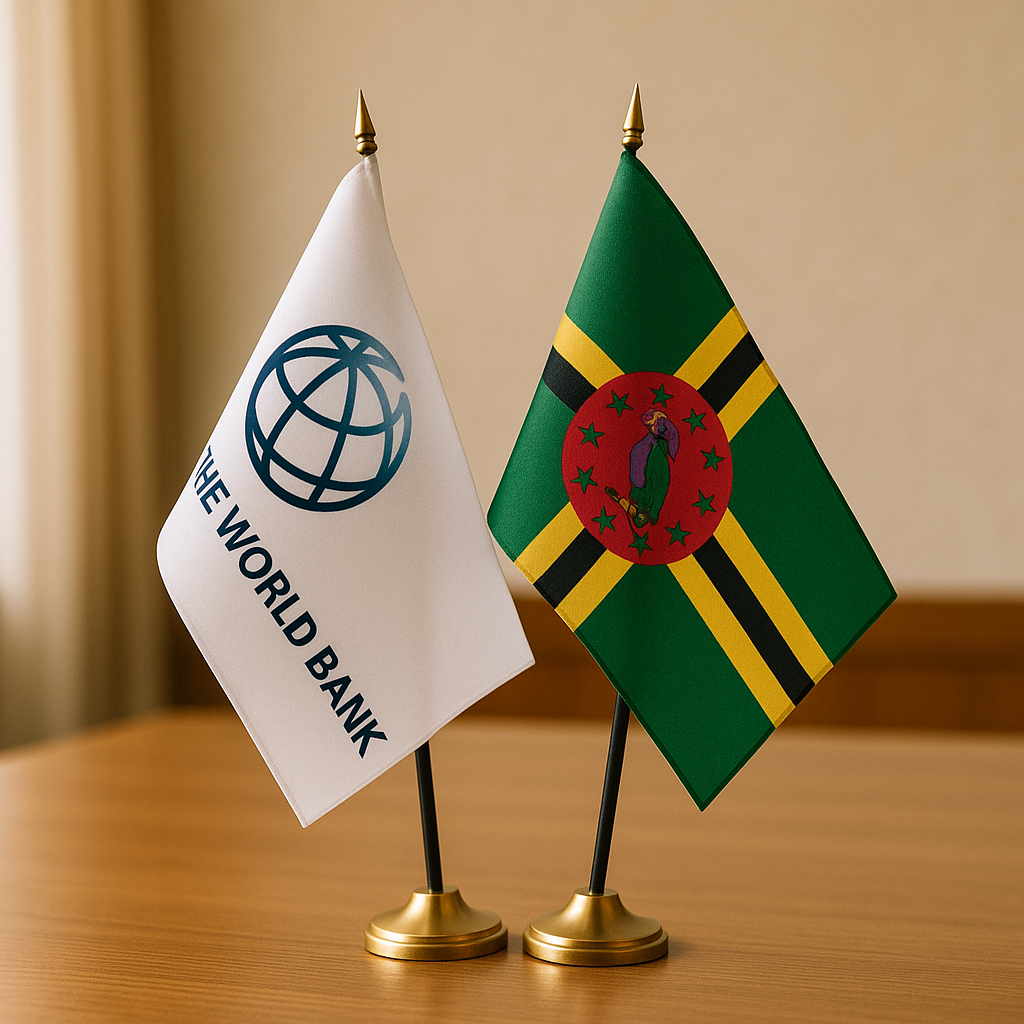World Bank Approves $24M Support to Strengthen Dominica’s Fiscal and Climate Resilience
Tropical Storm Erika in 2015 and the devastating Hurricane Maria in 2017 caused extensive infrastructural and economic damage, setting back growth efforts by years.

The World Bank’s Board of Executive Directors has approved a new Development Policy Credit worth US$24 million to support the Commonwealth of Dominica in fortifying its economic stability, enhancing resilience in its financial sector, and conserving its prized biodiversity. This financial operation aligns with Dominica’s vision for a more resilient, prosperous future and addresses the dual threats of fiscal fragility and climate vulnerability.
Known globally as the "Nature Island of the Caribbean," Dominica boasts some of the world's most stunning biodiversity and marine ecosystems. Its lush rainforests, coral reefs, and rich wildlife form the bedrock of the nation’s tourism-driven economy. Yet, Dominica’s development has repeatedly been derailed by severe natural disasters.
Tropical Storm Erika in 2015 and the devastating Hurricane Maria in 2017 caused extensive infrastructural and economic damage, setting back growth efforts by years. Though the island escaped the worst of Hurricane Beryl in July 2024, the storm still inflicted substantial infrastructural damage and disrupted local livelihoods.
These recurring climate shocks have also strained Dominica’s public finances. Public debt, which peaked at 118.2 percent of GDP in 2020, remains high at around 103 percent in 2024, highlighting the urgent need for fiscal reform and climate adaptation measures.
The Development Policy Credit: Key Focus Areas
The Dominica Strengthening Fiscal and Climate Resilience Programmatic Development Policy Credit is designed to support crucial policy reforms across two strategic pillars:
1. Strengthening Domestic Revenue Mobilization and Financial Sector Resilience
-
Excise Tax Reforms: The government is modernizing its excise tax framework, targeting goods such as fuel, alcohol, and sugary beverages. These reforms aim to boost government revenue while delivering co-benefits, such as reducing greenhouse gas emissions and improving public health outcomes.
-
Enhancing Financial Sector Oversight: New measures will tighten supervision over critical financial institutions like the Dominica Agricultural Industrial and Development Bank and credit unions. Strengthening financial oversight is vital for safeguarding depositor funds, maintaining stability, and ensuring that the financial sector can better withstand economic shocks.
World Bank Caribbean Division Director Lilia Burunciuc emphasized, “Dominica faces the dual challenge of managing high disaster vulnerability and fiscal fragility. This initiative supports strategic policy reforms that are vital for building resilience, generating sustainable revenue, and protecting Dominica’s extraordinary natural heritage.”
2. Promoting Biodiversity Conservation and Climate Resilience
-
Sperm Whale Reserve: A landmark element of the program is the creation of the world's first marine protected area dedicated exclusively to sperm whales. This conservation initiative is expected to significantly bolster eco-tourism revenues, with permit income from swim-with-the-whales experiences projected to rise by 177% by 2027.
-
Asset Risk Management for Public Infrastructure: To enhance disaster preparedness, Dominica is implementing a risk-based asset management system for public buildings. By 2027, the government expects to inventory and prioritize 40% of public fixed assets for risk mitigation investments. This system will guide smarter, resilience-focused public investment decisions and reduce vulnerability to future natural disasters.
Alignment with National Strategies
This initiative dovetails with Dominica’s broader strategic frameworks, including the National Resilience Development Strategy 2030 and the Climate Resilience and Recovery Plan 2020–2030. Both plans outline Dominica’s vision to become the world’s first climate-resilient nation—a necessity for small island developing states facing escalating climate threats.
The World Bank’s operation was developed through extensive consultations with national stakeholders and international development partners, including the Caribbean Development Bank and the International Monetary Fund, ensuring that the program is well-rooted in local priorities and realities.
About the Financing Mechanism
The US$24 million credit is provided through the International Development Association (IDA), the concessional financing arm of the World Bank Group that supports low-income and vulnerable countries. Unlike project-based funding, Development Policy Credits offer direct budget support to governments that have already enacted critical policy reforms, providing immediate fiscal space to pursue priority programs.
Once disbursed, the funds will be allocated through Dominica’s national budget, reinforcing initiatives that are central to the country’s economic, social, and environmental resilience agenda.










